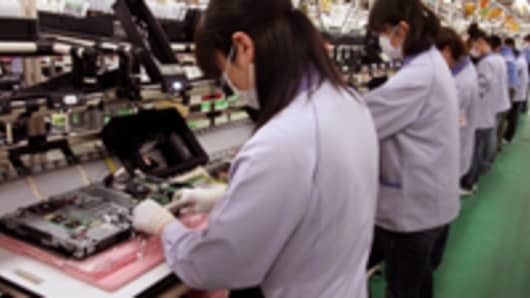The Japanese government plans to spend up to 1 trillion yen ($11.6 billion) to buy machinery and factories from domestic manufacturers in a bid to strengthen Japan industrial competitiveness by providing funds for new corporate investments, the Nikkei business daily said on Monday.
The program, which is seen lasting more than five years, calls for creation of a special-purpose company, funded by the government and private-sector leasing firms, to buy the assets and then lease them back to the sellers, the newspaper reported, citing unnamed officials.
In recent years, high asset-depreciation charges have added to Japanese manufacturers' reluctance to invest in developing new technologies, which has limited their ability to compete with overseas rivals.
The government will seek to pass the new law as early as the coming parliamentary session, but as much as 100 billion yen ($1.2 billion) will be set aside in advance in a supplementary budget to be completed in January, the Nikkei said.
Makers of electronics, industrial machinery and carbon fibre are interested in the plan, the Japanese newspaper added, with proceeds from the sales available to fund new growth drivers via capital expenditures or research and development.
In 2012, Japanese microchip manufacturer Elpida Memory went bankrupt, and fellow chipmaker Renesas Electronics had to be bailed out, in part as they were saddled with heavy capital spending to keep pace with overseas rivals such as Samsung Electronics.
Japanese consumer electronics giants Panasonic, Sharp, and Sony are selling buildings and businesses in a giant "garage sale" after racking up massive financial losses.
Japanese government offices were closed on Monday for the year-end holidays.


